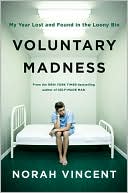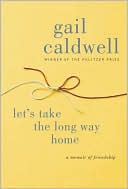Voluntary Madness: My Year Lost and Found in the Loony Bin
Search in google:
The journalist who famously lived as a man commits herself- literallyNorah Vincent's New York Times bestselling book, Self-Made Man, ended on a harrowing note. Suffering from severe depression after her eighteen months living disguised as a man, Vincent felt she was a danger to herself. On the advice of her psychologist she committed herself to a mental institution. Out of this raw and overwhelming experience came the idea for her next book. She decided to get healthy and to study the effect of treatment on the depressed and insane "in the bin," as she calls it.Vincent's journey takes her from a big city hospital to a facility in the Midwest and finally to an upscale retreat down south, as she analyzes the impact of institutionalization on the unwell, the tyranny of drugs-as-treatment, and the dysfunctional dynamic between caregivers and patients. Vincent applies brilliant insight as she exposes her personal struggle with depression and explores the range of people, caregivers, and methodologies that guide these strange, often scary, and bizarre environments. Eye opening, emotionally wrenching, and at times very funny, Voluntary Madness is a riveting work that exposes the state of mental healthcare in America from the inside out. The Barnes & Noble Review Norah Vincent first achieved fame for dressing and living as a man for 18-odd months and writing about her exploits in Self-Made Man. The writing of that book, and the double life that preceded it, were so taxing they drove Vincent to depression. Her first trip to a mental institution gave Vincent, being who she is, the idea for another book that would chronicle the state of mental health institutions in America. So began Vincent's voluntary confinement to three different mental hospitals: Meriwether, a jaw-droppingly depressing facility in New York City; St. Luke's, a make-do private asylum in the Midwest; and Mobius, a five-star retreat in the South. Vincent's account flits from the journalistic to the deeply personal (at Mobius, she finally came to terms with her abuse as a child). Narrating heartbreaking stories of her fellow inmates, Vincent allows herself to become their fairy godmother, walking the fine line between meeting their demands and retaining her own fragile mental equilibrium. She is expectedly damning with regard to the assembly-line nature of mental hospitals in which doctors are keen to categorize patients into neat subheads so as to depersonalize the line of treatment. Equally, the big pharmaceutical companies, which spend millions of dollars on bettering habit-forming drugs such as Prozac, come in her line of fire. This is a serious subject; however, Vincent's smart-alecky writing style, which perfectly suited her fun drag king experiment, precipitously verges on the disingenuous. Vincent's dedication to her subject shows more clearly in the chronicle of what she was willing to do to get the story than in how she unfolds it. --Vikram Johri








